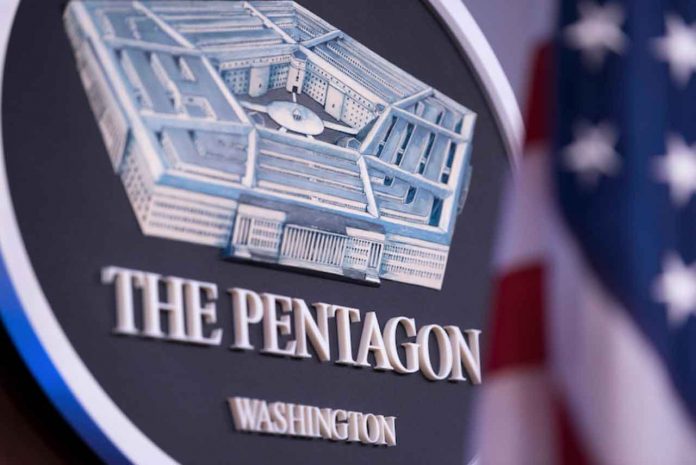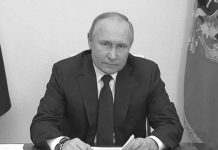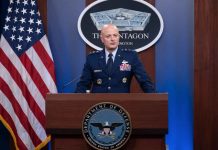WASHINGTON – NEWS – Ukraine is battling for its life as Russia continues its unprovoked war on the nation, and it is in U.S. international interests that Russia does not succeed, Celeste Wallander, the assistant secretary of defense for international security affairs, told the House Armed Services Committee today.
When Russian President Vladimir Putin ordered the invasion of Ukraine in February 2022, he anticipated an easy conquest of the neighboring state and a step to his ultimate goal of undermining European security and the Trans-Atlantic Alliance, she said.
Spotlight: Support for Ukraine
“Putin’s goal is to subjugate Ukraine, to strip it of its sovereignty and independence, but also to weaken and subvert Europe, America and especially, of course, the NATO alliance,” she told the committee.
The U.S. response was in step with that of allies around the world, who want to see the “strategic failure” of Putin’s brutal war. “Our objective, and what has guided our policies for the last two years, is that Ukraine remain a sovereign, independent European country that is able to defend and deter and to deliver that failure to Putin,” Wallander said. “Ukraine is doing that with our support every day.”
The United States must continue funding to Ukraine to provide the armed forces with the systems, ammunition and training needed to defeat Russian aggression. This has implications well beyond Ukraine, the assistant secretary said.
U.S. support helps strengthen the NATO alliance to defend America’s European security, she said. “Our alliances in Europe enable American military presence more broadly, globally, as well as to defend and deter against Russia,” Wallander said. “China is watching how we perform in Europe, because they are drawing lessons for how we will live up to our commitments to allies and partners in the Indo-Pacific. So, we need to ensure that Putin also fails in his goal to undermine European security.”
While Americans admire Ukraine’s fight against a much larger foe, it also affects U.S. self-interests. “In the end, we are doing this so that Americans can be secure at home and abroad,” she said.
Wallander detailed what the U.S. has done since Russia’s invasion. “The department has enhanced its posture in Europe over the last two years,” she said. “But we are not alone. I can report that our allies in Europe are sharing the responsibility for collective defense. Together with our allies, the department is committed to reinforcing the lesson that aggression will result in very costly failure. American security and prosper and prosperity rely on that fact.”
Russian forces continue assaults in Ukraine. Missiles continue to target civilian infrastructure and cause widespread destruction in the nation. “Ukraine’s defenses and its population will face devastation without additional U.S. security assistance to join with Europe’s,” she said.
She noted that Secretary of Defense Lloyd J. Austin III has chaired the Ukraine Defense Contact Group since the beginning of the Russian invasion to aid the nation in its fight against Putin. Now, the allies and partners have focused on key capability areas for Ukraine’s defense. These are its air force, ground-based air defense, artillery, maritime security, armor, information security, information technology, demining and drones.
In February, Russia’s unprovoked and indefensible full-scale invasion of Ukraine entered its third year.
The United States will continue to stand shoulder to shoulder with Ukraine.
Ukraine’s fight is not just about Ukraine’s survival. It is also about America’s security. pic.twitter.com/L9hURyLnEk
— Secretary of Defense Lloyd J. Austin III (@SecDef) April 9, 2024
“Through U.S. leadership of the Ukraine Defense Contact Group, we have provided more than $88 billion in security assistance to Ukraine,” she said.
Russia is paying the price with Putin having to invest more than $211 billion into the war, which comes from a country that really cannot afford the expenditure, she said. It has also been costly in lives, with U.S. leadership ensuring that Russia is bearing enormous costs as a result of its war against Ukraine. Russia has expended $211 billion to equip, deploy, maintain and sustain operations in Ukraine. Resources that Russia’s limited economy can’t afford.
Russia’s military has also bled. “Russia’s armed forces have suffered at least 315,000 casualties in the fight,” Wallander said. “Yet, because of Putin’s obsessions, Russia will be a threat to European and U.S. security for years.”
Putin’s actions have also meant a stronger NATO. Finland and Sweden joined the alliance because of Russia’s actions. Longtime allies are investing in defense with 18 allies meeting the NATO goal of investing 2% of gross domestic product in defense. This is up from 9% in 2020, and that number will be higher by the summer, Wallander said.
“NATO allies, together, are answering the call to meet this historic threat,” she said. “The department will continue working with allies to defend our countries and our freedoms throughout Europe, including on its eastern flank those facing Russia where American soldiers serve on the front line.”






